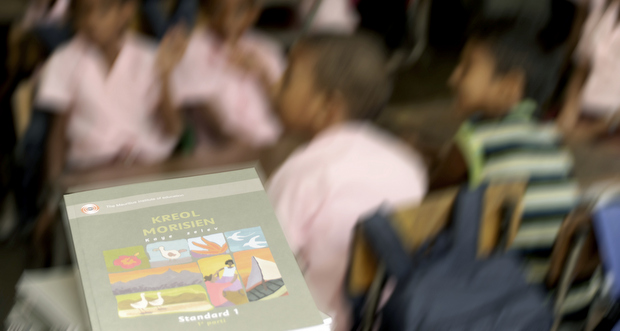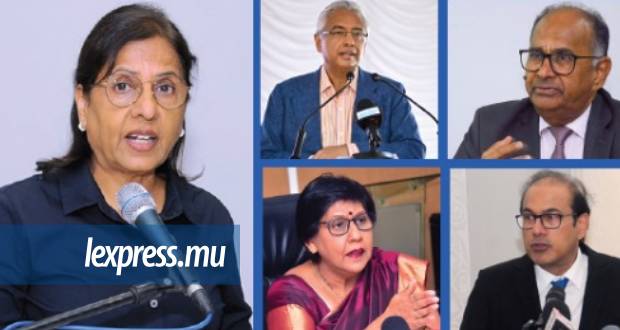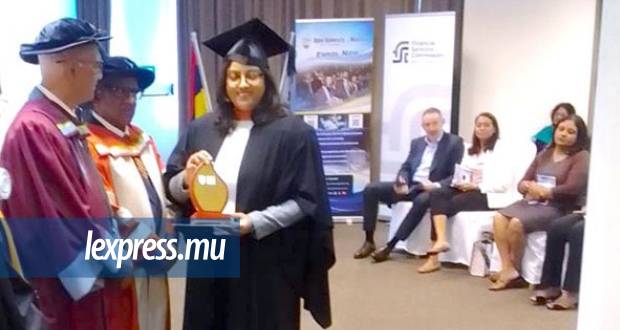Publicité
Education : give the Kreol language time to brew
Par
Partager cet article
Education : give the Kreol language time to brew

In the context of the declaration of the Inter- national day of native language, it is interesting to refer to what Noam Chomsky declared regarding the use of the vernacular; that it should be the chosen vehicle of communication for our children at school. The laudable obvious reason is that instructions in the classroom can be imparted to the children effectively only through the language that they are conversant with. The mother tongue of the children should be the choice for imparting knowledge and education at school.
However, Chomsky, almost in the same breath, declares that a child from his/her very early age can master the learning of a multiplicity of languages. That is from the age of zero to seven years – these years being or “proven” as the age where the child is the most sensitive to the successful learning of several languages simultaneously.
The declaration of the expert indicates that the ability of the child exposed to the many languages situation does not come across anything in the form of obstacles in the learning of innumerable languages during his early years. If we may strike a conclusion at this stage from the sayings of Chomsky, it is that the beliefs that too many languages should not be imparted to the children can be a misnomer, a false belief.
Herein, a fantastic and significant situation, an example of which can be made available; watching the child using Kreol, Chinese and Bhojpuri for communication with others around him. This child is often of age seven or eight years. He is also exposed to the learning of English and French in class.
Everything is obviously going on well in as far as learning and teaching of languages is concerned. In addition, Muslim children are known to learn Urdu in their Maktab early each morning. Maktab being the institution where Urdu is taught; Baitka is the school where the Hindi teacher teaches Hindi to Hindu children, mostly during the weekends in the rural areas. There are also Chinese schools where Mandarin is taught both full time and part time.
So, where is the problem? (It is not the intention of the author in the present context to dwell on issues like bad teaching, children with special needs requiring special or additional treatment where failure of progress is encountered in the teaching of languages is concerned. This aspect can be looked after under a different title.) Are we not really magnifying the issue of problems in language learning and teaching in our assumption that “bombarding” the children with too many languages can create havoc for the child at home, in social gatherings and at school? When witnessing the infinite capacity in language acquisition in the child, we, adults are compelled to believe with awe that we may be mistaken if we at all take it that it’s too much of a burden for these children. Taking into consideration the introduction of Kreol in the curriculum at school, we must consider it as an asset. For that matter, the emergence of any language has been through the oral use of it and its ultimate, and sometimes, painful culmination into an accepted written one, which is a welcome addition to the rich already existing written languages in the world.
Is it not true that every existing official language has had to pass through umpteen trials before becoming standardised and polished into a universally accepted written form of it? This final acceptance has taken a lot of time, passing practically as oral languages before finally emerging as acquired written language.
Our Kreol language is at the moment being accepted as subject within the curriculum, but the ultimate endorsement of it will be gradual. It will take its time and we have to let time brew it into a universal standardized language. The people have not as yet reached the stage where the required prestige is a priori given to the Kreol language. Until then, the time for this language to brew must be allowed to it. We cannot hasten the issue.
Way back in 1953, UNESCO recommended that education at school should be imparted in the vernacular – it being the only language the children are conversant with. In that case, it is presumed that the use of any other languages other than the vernacular as medium of instruction can only go counter to the cognitive requirement of children at school.
With this UNESCO presumption in mind, we must pause and ask the question: what language is actually the vernacular in this country? Children here come from families with diverse and different linguistic backgrounds. We, educators and parents, tend to assume that Kreol is the common language used here. I am not quite sure this is the case. The children do not all fully understand Kreol in all schools throughout the island.
On the other hand, there is a difference between the use of Kreol as medium of instruction and the teaching of it as a subject within the school programme. Hence, what are we talking about? Medium or subject? I strongly believe that the teacher can achieve the teaching of English and French, supplementing the teaching of these two languages of inter- national repute with the use of Kreol wherever the facilitating of the imparting of these languages is concerned. I strongly believe that in practice, the use of the “help” of Kreol is and has been used as ever. And the children have been progressing without any obstacle.
This writing is to suggest food for thought regarding the declarations of Chomsky, the recommendations of UNESCO and, last but not least, the preference of parents where their children are concerned. Too often parents are worried that their children might be ghettoed into limitations if they do not acquire English and French for international communication in lieu of Kreol, especially if the latter is to take precedence over the two others.
Publicité
Les plus récents






